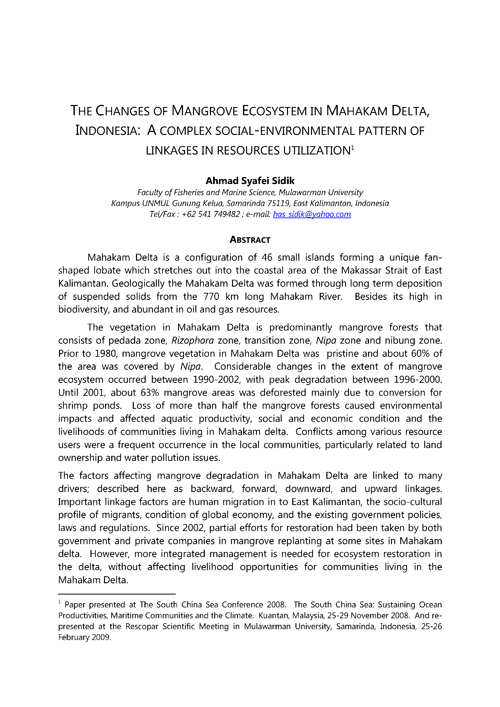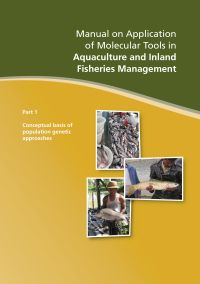The changes of mangrove ecosystem in Mahakam Delta, Indonesia: A complex social-environmental patter on linkages in resources utilisation
19 August 2009 | Ahmad Syafei Sidik | 1964 Downloads | .pdf | 425.19 KB | Genetics and Biodiversity, Indonesia, Livelihoods, gender and social issues, Aquatic plants
Mahakam Delta is a configuration of 46 small islands that stretch out into the coastal area of the Makassar Strait of East Kalimantan. Geologically the Mahakam Delta was formed through long term deposition of suspended solids from the 770 km long Mahakam River. The delta is high in biodiversity and has abundant oil and gas resources.
The vegetation in Mahakam Delta is predominantly mangrove forest that consists of a pedada zone, Rizophora zone, transition zone, Nipa zone and nibung zone. Prior to 1980, mangrove vegetation in Mahakam Delta was pristine and about 60% of the area was covered by Nipa. Considerable changes in the extent of mangrove ecosystem occurred between 1990-2002, with peak degradation between 1996-2000. Until 2001, about 63% mangrove areas was deforested mainly due to conversion for shrimp ponds. Loss of more than half the mangrove forests caused environmental impacts and affected aquatic productivity, social and economic conditions and the livelihoods of communities living in Mahakam delta. Conflicts among various resource users were a frequent occurrence in the local communities, particularly related to land ownership and water pollution issues.
The factors affecting mangrove degradation in Mahakam Delta are linked to many drivers; described here as backward, forward, downward, and upward linkages. Important linkage factors are human migration in to East Kalimantan, the socio-cultural profile of migrants, condition of global economy, and the existing government policies, laws and regulations. Since 2002, partial efforts for restoration had been taken by both government and private companies in mangrove replanting at some sites in Mahakam delta. However, more integrated management is needed for ecosystem restoration in the delta, without affecting livelihood opportunities for communities living in the Mahakam Delta.
Creative Commons Attribution.

